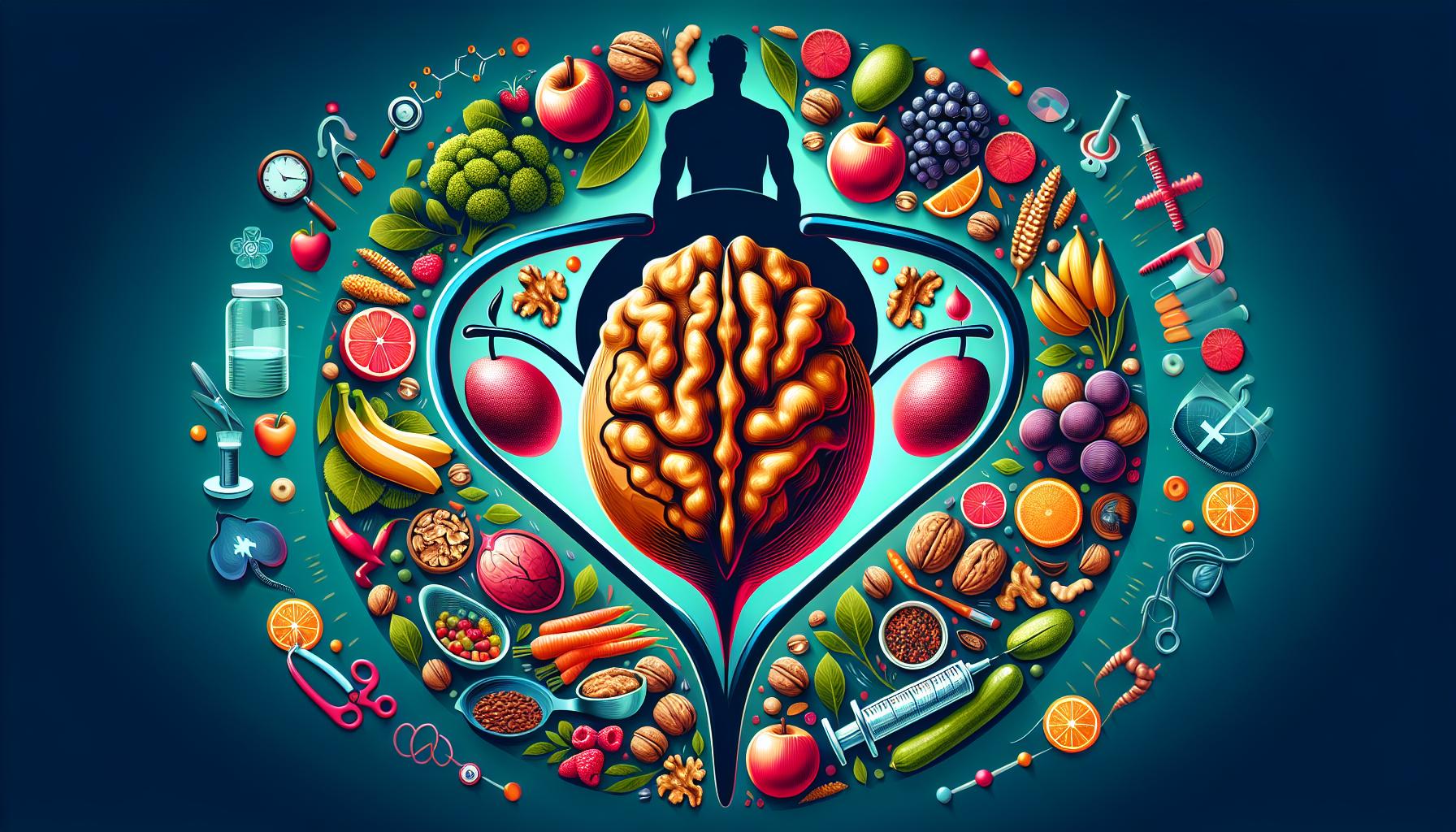Proactive Prostate Health: Exploring the Dietary Route
If there’s one question that’s been doing rounds in your mind lately, it’s probably this: What is the best diet for managing an enlarged prostate? In an attempt to untangle this tangled web, we’ll serve you an appetizing pool of knowledge, shedding light on the sort of grub that can make a meaningful difference to your prostate health.
In simple terms, a balanced diet, rich in fiber, plant proteins, omega-3 fatty acids, and antioxidants, often comes highly recommended for managing an enlarged prostate or benign prostatic hyperplasia (BPH). But then, is the answer that simple? Of course not! Each of these components carries a significant weight in the diet game, and we’ll further ‘dish out’ the key details in the upcoming parts of the article.
Starting with the Essentials: Plant Proteins
When it comes to an enlarged prostate, plant proteins step in as the unsung heroes. These nature’s gifts, unlike their animal counterparts, are said to minimize the risk of BPH, making them an ideal part of the menu for anyone dealing with this condition.
Foods topped with Plant Proteins
Kidney beans, chickpeas, lentils, and tofu serve as a grand feast for a healthy prostate. These foods, teeming with antioxidants and devoid of cholesterol, stand as tried-and-true winners in the age-old battle of plant proteins Vs animal proteins.
Raking in the fiber for Prostate Wellness
Jumping from one key component to another, we now land on dietary fiber. Ah, the quintessential part of any diet, this particular star shines brighter for anyone seeking relief from an enlarged prostate.
The Fiber-Tastic Panorama
Thinking fiber, think whole grains, fruits, and vegetables! Foods such as oats, brown rice, apples, and green peas make a terrific fiber-rich ensemble for any prostate-friendly diet.
The Miracle Workers: Omega-3 Fatty Acids
Breaking traditional views of fat, Omega-3 fatty acids wave their magic wands, offering a world of health benefits. Their story with an enlarged prostate is anything but different, helping men lead a life unshackled from its pesky symptoms.
The Omega-3 Orchestra
Foods such as walnuts, chia seeds, flaxseeds, and fatty fish like salmon and mackerel are often the maestros of the Omega-3 orchestra, playing the perfect symphony for your prostate health.
Last but not least: Antioxidants
By extending their assistance to the detoxification process in your body, antioxidants sweep away harmful free radicals that could potentially affect the prostate. They also play an imperative role in inflammation control, a process closely connected with BPH.
The Antioxidant Army
The antioxidant army dons a wide variety of colors – Think bright oranges (oranges, bell peppers), deep blues and purples (blueberries, grapes), and vibrant greens (spinach, broccoli).
Your Prostate Health Strategy: A Final Note
Adopting a diet beneficial for managing an enlarged prostate isn’t rocket science. With the right mix of plant proteins, dietary fiber, Omega-3 fatty acids, and antioxidants, you can positively influence your prostate health. Here’s to personal wellness, one meal at a time!
Frequently Asked Questions
1.
Does coffee affect an enlarged prostate?
Moderate coffee consumption should not have significant effects on an enlarged prostate. However, due to its diuretic properties, excessive intake could exacerbate urinary symptoms.
2.
Can I drink alcohol when managing an enlarged prostate?
Moderate alcohol consumption usually doesn’t harm prostate health. However, excessive drinking may aggravate urinary symptoms and interact unfavorably with prescribed medications.
3.
Are tomatoes good for an enlarged prostate?
Absolutely! Tomatoes are rich in lycopene, an antioxidant that supports prostate health.
4.
Can spicy foods affect an enlarged prostate?
Some people may find spicy foods exacerbate their urinary symptoms, so it’s best to consume them in moderation based on your individual tolerance.
5.
Is red meat good for an enlarged prostate?
While moderate consumption of lean red meat isn’t harmful, excessive intake, especially of processed varieties, may contribute to prostate issues. It’s best to discuss your diet with a healthcare professional.


